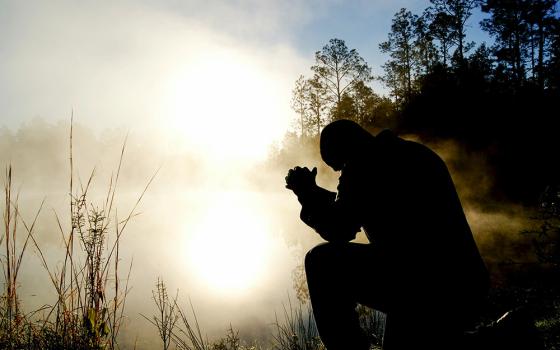On this day we celebrate the feast of St. Joseph Freinademetz.
"Joseph Freinademetz was born on April 15, 1852, in Oies, a small hamlet of five houses situated in the Dolomite Alps of northern Italy." In Ladin, he was called Üjöp.
In 1878, as a young priest, he joined the newly formed Society of the Divine Word and was sent as a missionary to China.
In his Homily at the canonization of Joseph Freinademetz on Oct. 5, 2003, Pope John Paul II referred to the new saint's origin among "mountain people".
"Echoing these words of Jesus, the words of St Joseph Freinademetz are filled with faith: 'I do not consider missionary life as a sacrifice I offer to God, but as the greatest grace that God could ever have lavished upon me'. With the tenacity typical of mountain people, this generous 'witness of love' made a gift of himself to the Chinese peoples of southern Shandong. For love and with love he embraced their living conditions, in accordance with his own advice to his missionaries: 'Missionary work is useless if one does not love and is not loved'. An exemplary model of Gospel inculturation, this Saint imitated Jesus, who saved men and women by sharing their existence to the very end."
A web site of the Divine Word Missionaries describes St. Joseph Freinademetz's home in the Dolomites and reiterates the Pope's remarks about his inculturation to China.
"One thing you might notice when looking at a picture of Joseph is that he looks Chinese. He so enculturated himself to China that he took on a form of dress similar to the local Chinese spiritual leaders. He most frequently repeated words were, 'I would like to be Chinese in heaven.' He truly loved the Chinese people with whom he lived and worked, and Joseph was especially energized by the local clergy and catechists. He promoted the idea that they should become the leaders in the local Church before Rome was quite ready for this."
After thirty years as a missionary, Joseph died of tuberculosis at Taikia, South Shandong, on Jan. 28, 1908.
"Divine Word Missionaries: The Founding Generation" includes many pictures of St. Joseph Freinademetz, his home in Austria, his parents, his life in China, and an unusually candid story of his life. Notice the letter to his brother and his description of celebrating High Mass for German soldiers in Tsingtao.
"When there was talk of calling him back to Europe for a senior position, he described himself in a manner that is almost a confession. He saw himself obliged to 'open his innermost heart so that Father Rector [A. Janssen] will know what a miserable subject you are dealing with.' After the request not to regard his open confession as false humility, he allowed a look into his most intimate self, wrote that in his thoughts he had problems with sexuality, and then described his character: 'I am terribly vain and conceited; I am moody and dejected when things don’t go according to my will; on the other hand, unrestrained and unpleasantly ironical when things are going well. I quickly become unwilling and impatient and sometimes even put the catechumens off through my example. In no way do I have control over myself and I often give in to the lure of passions.'”


